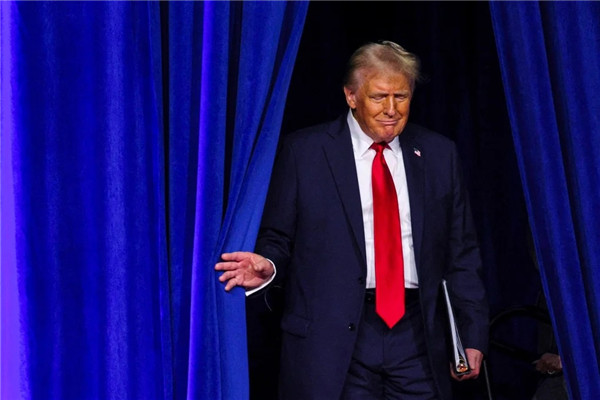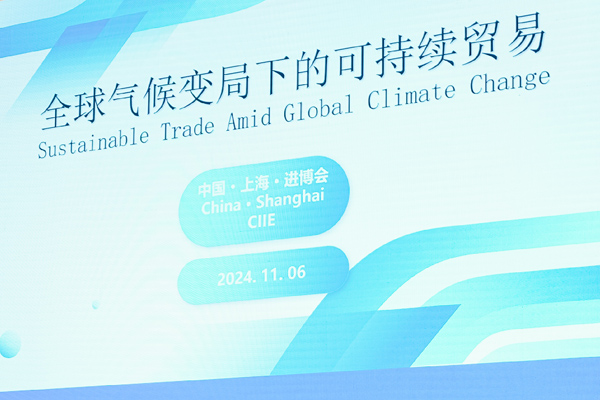New Book by top CCG Scholar Defines Key Factors in China’s Geopolitical Strategy
The Center for China & Globalization (CCG) held a seminar on April 25, 2016, in which Professor Wang Jisi, President of the Institute of International and Strategic Studies, Peking University, also a member of the CCG Academic Committee, introduced his newly published book Great Powers’ Strategies. This work lays out fresh thinking about the key factors shaping the core strategies of great powers. In so doing, Professor Wang draws profound insights into the Sino-American relations and the role of China as an emerging superpower.
The new book brings together Professor Wang’s academic research achievement over the past years. The content of the book is truly broad in scope, ranging from the historical review of China’s international strategies to the analysis of Sino–U.S. relations. Wang also deals with emerging Chinese geopolitical strategies aimed at reshaping the current balance of power. Drawing upon comparative studies, Prof. Wang presented his thinking on a large number of highly salient issues from a historical perspective that can help readers understand current and future developments in global politics better.
An acclaimed scholar, Prof. Wang served as the director of the Institute of American Studies at the Chinese Academy of Social Sciences and was head of the Institute of International Strategic Studies at the CPC’s Central Party School. His areas of expertise include U.S. foreign policy, Chinese foreign policy, and Asian security affairs. He has published extensively in these fields, including the Rational Reflections on International Politics and World Politics in Transition: 1979-2009. In addition, Professor Wang is also the author of the well-known article, “China’s Search for Grand Strategy”. He has also co-authored with Dr. Kenneth Lieberthal of the Brookings Institution on a major study Addressing U.S.-China Strategic Distrust.
Professor Wang delivered a keynote speech and shared with the audience the highlights of his new book. He argued that there are three key determinants in terms of core national interests: political stability, national security, and development. When examining a country’s core national interests, a multi-dimensional perspective to integrate the analysis of domestic situation and international relations is needed. He also challenged the traditional notion of simply defining China as an Eastern country that is becoming increasingly “Westernized.” China remains a developing country, but begins to take on some of the characteristics of developed countries. Nevertheless, despite its rapidly growing economy, China has no intention of following in the footsteps of Western developed countries. In fact, China is building relations with both developed and developing countries and serving as an interconnected bridge. Strategically, China is situated in the middle on the world stage.
In discussing Sino-US relations, Professor Wang stressed the need of carefully considering the domestic political context of both countries. He agreed that the history of Sino–U.S. relations can be divided into four stages. The first began in the Qing Dynasty and ended with its fall 1911 and establishment of the Republic of China. The second stretched from 1911 to the birth of the People’s Republic of China in 1949. The third covered the period from 1949 to the 1979 Reform and Opening-Up in China. The final phase has lasted from 1979 to present. In Prof. Wang’s view, the four stages corresponded to the transformative events in China. When it comes to bilateral relations, Professor Wang argues that China is the “variable” while the U.S. remains a “constant”. He believed that the China-U.S. relations shall not be fluctuated by the result of the upcoming U.S. presidential election. He also mentioned the often-stated view that America is a declining power. Professor Wang suggested that one of the major reasons that the United States will remain a superpower has to do with its success in attracting and integrating large numbers of talented immigrants.
Professor Wang also argued that world politics is affected by a combination of factors, including economics, demography, social development, and the distribution of natural resources as well as ecological problems among countries. He emphasized that diplomatic policies are fundamentally determined by domestic politics and international relations are shaped by world politics.
Ni Feng, deputy director of the Institute of American Studies at the Chinese Academy of Social Sciences, applauded Prof. Wang’s new book, arguing the he has set forth valuable perspectives gleaned from years of globetrotting and extensive research. Ni believes that the world’s great powers are competing in multiple fields including politics, economy, society, science, and culture. Coming out on top in these areas is determined not so much by who has the upper hand in terms of capabilities, but the ability to avoid making mistakes.
He Shenquan, a senior editor from the Global Times newspaper, noted that the book was released at a time when Chinese scholars have many disagreements regarding America’s national power and intentions toward China.
He Weiwen, the co-chair of the Center for China-US-Europe Studies at the China Association of International Trade and CCG senior research fellow, agreed with Prof. Wang that America’s power should not be underestimated. To start with, the U.S. dollar remains the dominant world currency and America continues to have the biggest say in shaping international norms and regimes. He also agreed that diplomatic policies derive from domestic political polices.
Zhao Minghao, an associate research fellow from China Center for Contemporary World Studies, commended Professor Wang’s new way of viewing China’s diplomacy and external relations that offers fresh perspectives on how to study international relations. He pointed out that the basis for China’s diplomacy is shifting as its economy grows rapidly and outbound investment expands. China needs to explore new cooperative initiatives and adjust its external relations.
Wrapping up the discussion, CCG President Wang Huiyao reiterated the importance of studying the diplomacy, strategies, and bilateral relations of China and the U.S., who are now the world’s two leading powers. In order to continue its rise to superpower status, China must properly handle its relations with the US. Economic development is where the two countries have the greatest shared interests. Thus, China should leave the door open to the countries like the U.S. and Japan to join its development initiatives such as One Belt, One Road and the Asian Infrastructure Development Bank. At the same time, including China in American and Japanese promoted initiatives like the TPP and TIP can generate greater growth in the world economy.
In addition to the above-mentioned scholars, those attended Prof. Wang’s talk included a at the CCTV English Channel and CCG senior research fellow Yang Rui, Director of CCG’s World Chinese Business Research Center Kang Rongping, and President of Stateoil China, Chen Xinhua.
LocationBeijing





